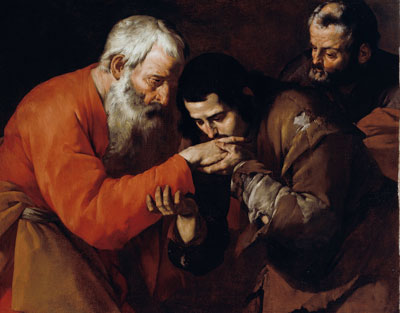It was a chilly March night, but as we gathered around the fire pit on the patio, it seemed that winter’s back had been broken and we were on the cusp of spring.
Our three children, and our new granddaughter, were home for a long weekend, and we were observing our family tradition of sipping a libation under the moonlight even if it meant bundling up against the Midwest’s persistent north wind.
We and our kids live in four different time zones, so we must observe traditions when we can. There’s nothing like the warmth of fire in the darkness to bring out laughter and good conversation.
The next day, with my guests asleep upstairs, I was struck that the day’s Lectionary reading was the story of the prodigal son. It’s a favorite of mine, filled with valuable lessons about parenting and family and forgiveness. The prodigal’s father is one of Jesus’ most descriptive portrayals of God, and how can we not marvel at such a description as we gasp at the idea of such a God?
If you haven’t spent time with the story of the prodigal son this Lent, I suggest it would be worthwhile (see Luke 15:11-32).
[hotblock]
The father rejoices even as he sees his son in the distance, the son who has done everything we parents would be appalled at. He has squandered his share of the family wealth in a life of debauchery. He has resorted to tending pigs — unclean in his tradition — and even coveting their food. How does the father feel when he sees this disappointing offspring far off on the horizon?
He feels unbridled joy and forgiveness.
 Often, when I read this story, I picture myself as the son, stumbling home starving, embarrassed and well aware of my sinful stupidity. Sometimes, I identify with the older brother. I’ve been so faithful, I’ve stayed the course. Why not kill the fatted calf for me and not this spoiled brat of a brother?
Often, when I read this story, I picture myself as the son, stumbling home starving, embarrassed and well aware of my sinful stupidity. Sometimes, I identify with the older brother. I’ve been so faithful, I’ve stayed the course. Why not kill the fatted calf for me and not this spoiled brat of a brother?
But anyone who has ever been a parent can also identify with the prodigal’s father. Parenting teaches you a lot about love. Jesus uses the father to say: This is how God loves you, and this is how you should love.
My kids are all adults now. I love them dearly, but like any parent, I’ve occasionally disagreed with a lifestyle choice or been tempted to offer direction where none was appropriate. How many of us have scars on our tongues from the times we’ve refrained from ill-timed nagging or disapproving comments or the unhelpful “I told you so”?
As I sat at morning prayer and thought about the prodigal’s family relationships, my eyes drifted out the window to the cold fire pit and the empty patio. I thought of how proud I am of the love that my children have for one another. I appreciated how they work to arrange their schedules so that they can visit at the same time. They love to be together. They keep in touch. They extend this loving attitude to extended family and to large networks of friends.
I can’t imagine any one of them as the older brother. Instead, I imagine them running down the road to welcome a sibling home, ring and sandals in hand, lots faster than I would. Like the father, no questions asked.
St. Ignatius of Loyola reminds us to find God in all things. Sometimes, in this weary world, that’s tough to do. But I realized God had been in our circle that night around the fire pit, and I felt a lot of gratitude for simple, nonjudgmental love.
PREVIOUS: An idea: Get the poor to where the jobs are
NEXT: How to lighten up without acting like a child




Share this story